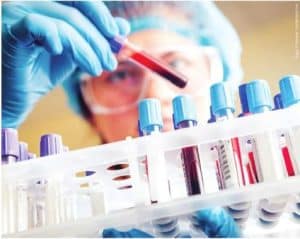Study reveals true scale of falsified medicines problem
pharmafile | April 22, 2015 | News story | Manufacturing and Production, Sales and Marketing | Counterfeiting, fake, falsified medicines, health, pharma, supply chain
The full scope and prevalence of counterfeit medicines is poorly understood, according to a study of global pharma supply chains.
The research from a team at the University of California San Diego, the only study of its kind with global statistics on counterfeit medicines, uncovered the ‘surprise’ finding that “little is known about the precise scope of the problem and how few mechanisms exist to monitor it”.
Counterfeit medicines have traditionally been defined as those for which the identity or source is mislabelled in a way that makes them appear to be a genuine product when they are not, though definitions of the problem itself are the subject of international debate.
Research suggests counterfeiting increased by 122% between 2005 and 2010. But experts agree the falsified drug problem is bigger than ever. The latest study looked at information collected in the Counterfeit Incident System, run by the Pharmaceutical Security institute (PSI), a non-profit organisation whose members include 28 major global pharma companies, between 2009 and 2011.
During this period there were 1,510 total reports of counterfeit incidents including 1,799 different counterfeit medicine detections. Nearly half involved a counterfeit product or packaging. The most counterfeited drug classes were anti-infectives (most commonly antimalarial drugs) (21%), followed by genito-urinary including erectile dysfunction drugs (15%), cardiovascular (12%) and central nervous system (11%), although every therapeutic class was represented.
China dominated the sources of incidents, with about a quarter (28%) of all reports coming from this single country. Around 15% of reports came from Europe.
Lead researcher Tim Mackey, director of the Global Health Policy Institute at UC San Diego, says: “The most important takeaway of our study is that we don’t have the necessary data or surveillance to effectuate meaningful public health interventions or policy change.
“We hope this study will prompt key opinion leaders and policymakers to make necessary changes to surveillance, security and improvements to pharmaceutical governance of drug supply chains in order to prevent future falsified medicine incidents and protect patients worldwide.”
The study is published in the American Journal of Tropical Medicine and Hygiene.
Lilian Anekwe
Related Content

LGC Group opens $100M Organic Chemistry Synthesis Centre of Excellence
LGC Group, a life sciences company, has opened its new Organic Chemistry Synthesis Centre of …

Johnson & Johnson announces successful results from trial for myeloma treatment
Global healthcare company, Johnson & Johnson, announced that analysis of its Darzalex (daratumumab) therapy showed …

Bend Bioscience adds commercial spray drying facility to Georgia site
Bend Bioscience has announced the addition of a commercial-scale spray dryer and a Gerteis dry …






